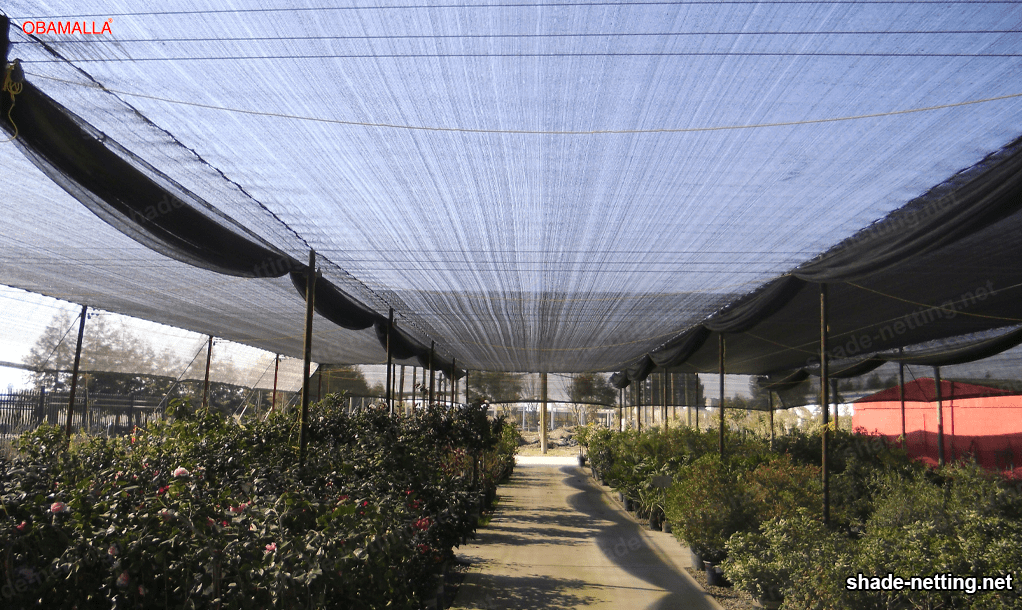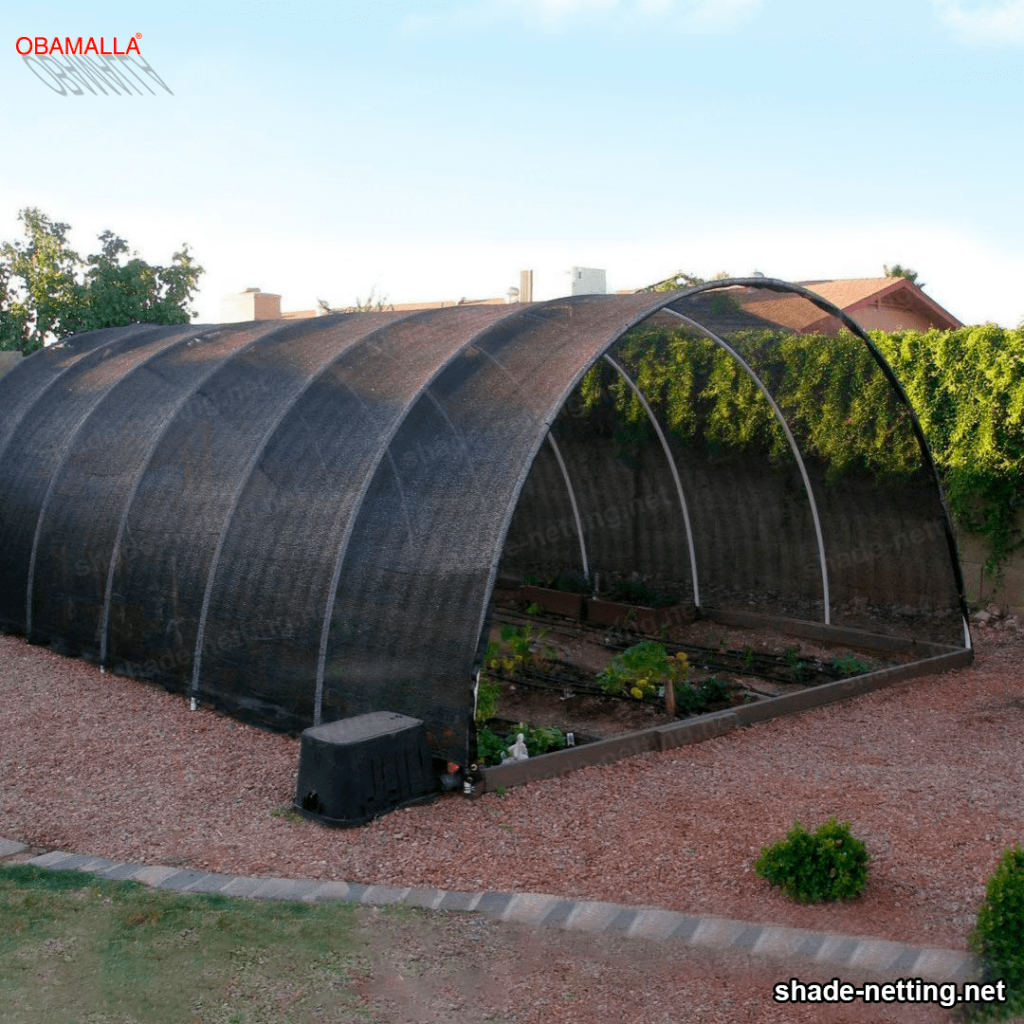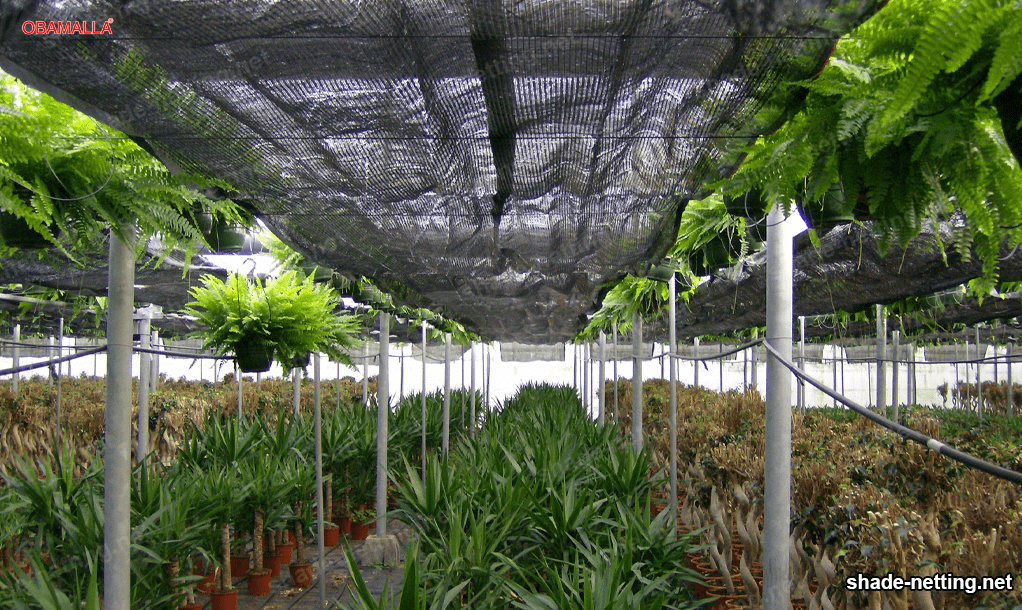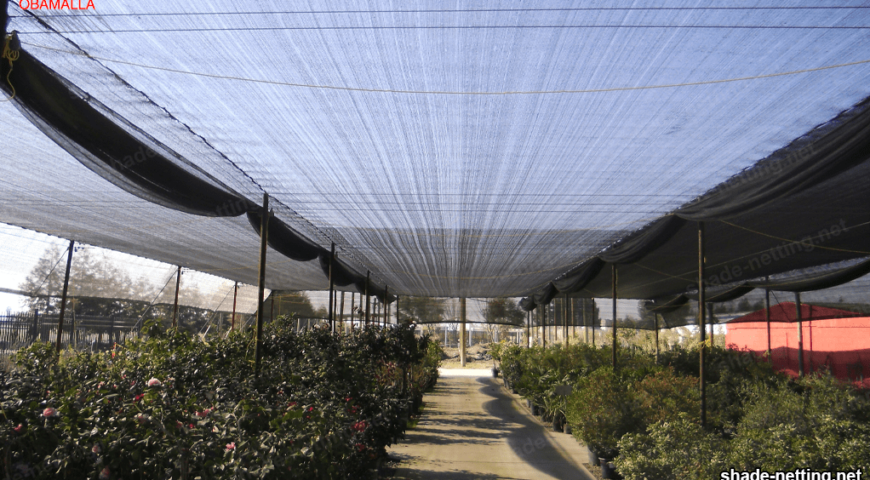Shade netting agricultural offers a multitude of benefits to growers, which is evident in crop production and quality.
These improvements agricultural are especially important for farmers who need to preserve and improve the yield of their crops without exposing them to the hazards of solar radiation and weather.
Shade netting can offer up to a 50% improvement in yield and quality, however this is an approximate figure. In this article we will discuss in depth five main improvements that shade netting offers growers.
1. It is essential for reducing heat. This is especially important for the hottest days when the temperature between the plants rises exponentially, which can severely damage them. Shade netting reduces the average temperature in the affected area and reduces the risk of sunburn.
2. Reduces evaporation. This is achieved by limiting the amount of sunlight reaching the soil and plants. By reducing evaporation, shade netting improves water use, allowing for greater moisture retention in the soil. This also contributes to better crop yields by maintaining irrigation at optimal levels.
3. It offers protection against solar radiation. Plants remain stronger due to the protection provided by the shade netting. This also reduces the risk of fruit and leaf scorch. This improves crop quality by providing extra protection.
4. Decreases the incidence of pests and diseases. Many insects, such as aphids and other types of pests and diseases, multiply more rapidly when exposed to sunlight. However, shade netting reduces their numbers by keeping humidity and temperature at appropriate levels.
5. Improves the nutritional quality of crops. Plants develop better with the help of sunlight, however, too much sunlight can cause a decrease in the nutritional quality of plants. Shade netting maintains an optimal level of sunlight without harming the nutritional quality of crops.

Shade netting offers a multitude of benefits to growers.
Allowing them to get better results from crops without exposing them to sun exposure or weather. These improvements include a reduction in temperature, a reduction in evaporation, an improvement in crop nutritional quality, protection from solar radiation and a reduction in the incidence of pests and diseases. All these improvements allow farmers to obtain the best yield and quality of crops, improving their agricultural production.
Shade netting has been increasingly used in agricultural crops, as it benefits plant development and increases yields. This synthetic fabric is an excellent way to decrease the intensity of the sun and increase the air temperature in crop fields. In addition, shade netting allows controlled sunlight to enter, which contributes to balanced crop growth. Some of the main benefits of shade netting are: reduction of the harmful effects of sunlight, increased air temperature, protection against pests, reduced osmotic stress, increased crop life and reduced maintenance costs.
A slight reduction in outdoor sunlight occurs when a shade net is placed over a crop.
This reduces the harmful effects of ultraviolet radiation, which is highly damaging to plant growth. Shade netting allows crops to receive the necessary amount of sunlight for growth, but reduces the irradiance that keeps the ambient temperature too high in summer. This reduces excessive transpiration, which helps maintain an optimal crop environment.
It can also reduce the risk of pest infestation. The advantage of this netting is that it is a light layer of synthetic material, which only provides a slight reduction in insect entry, but allows the sun’s rays to penetrate the crop. This allows crops to benefit from sunlight while preventing pest infestation. In addition, shade netting reduces osmotic stress on crops, which helps increase yields.
Crop lifespan is positively affected when shade netting is used.
This is because the netting reduces the temperature in crop fields, which helps prevent nutrient loss and cell damage in plants caused by excessive heat. This increases the shelf life of crops, which contributes to higher yields. The application of a shade net can also help reduce the cost of maintaining crop fields by reducing the demand for irrigation and fertilization.
Shade netting has been increasingly used in agricultural crops as it offers many benefits. This lightweight synthetic fabric reduces excessive ultraviolet radiation, increases air temperature, prevents pest infestation, reduces osmotic stress, increases crop life and reduces maintenance costs. The benefits of shade netting make it an excellent tool for growers who want to improve the quality and yield of their crops.

Shade netting is an important and necessary feature for a successful agricultural crop.
Shade netting is a soft, waterproof plastic mesh material used to provide shade and limit direct light and excessive heat to aid in crop maturation. In addition to providing shade, well-designed shade crops have approximately 20-25% more diffuse light from sunlight, allowing for better uniformity in ripening.
This netting should be considered that can be used to shield crops from line of sight, allowing the produce to receive more sunlight without increasing the risk of severe burns. This reduces the risk of severe burns while increasing crop yields. Also providing shade and improving crop yield, shade netting is also useful for protecting growers from consumers’ line of sight. This prevents consumers from seeing product defects, which helps control quality standards.
In addition, we can also use it to protect crops from the damaging effects of wind.
This helps minimize desiccation loss, minimizing crop dehydration. In most cases, shade netting can be used to reduce soil erosion, which allows for better crop performance.
Another advantage of shade netting is that it controls the amount of insects, moths and weeds that use the crop as food. This and other insect protection methods help reduce the amount of insecticides and herbicides farmers require to maintain a healthy crop. And as an additional consideration, shade netting is ideal for fruit and vegetable crops, providing them with the right amount of sunlight for healthy growth and ripening. This allows them to maintain their nutritional properties, which improves their overall quality. It also helps control ripening defects, which helps improve their marketable quality.
The use of shade netting is extremely important for agricultural production. It helps improve crop quality and yield, as well as providing protection from wind, direct sunlight and insect damage. This allows for optimum crop control, allowing for optimum quality products and maximum yields.

